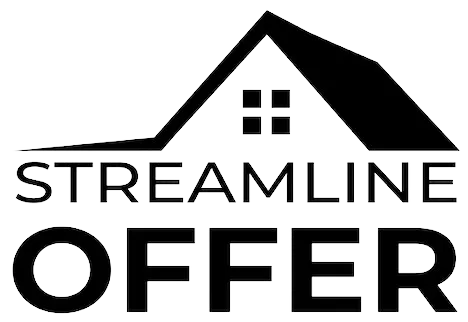Blog

All Articles

Home Selling

Local Trends

7 Essential Questions to Consider Before Selling Your Home
Reviewed by: Brandon Brown
Selling your home and moving ranks high on the list of life stressors—it’s a major change in your day-to-day structure, your finances, and your sense of security. Plus, the actual process of selling includes a lengthy checklist of tasks and choices. Whether you’re just pondering a change or need to move quickly in response to an out-of-state job offer, there are critical questions to ask before selling a home that will help you navigate the process and make the best choices for your situation.
#1 What’s My Motivation to Sell?
The first question is—why are you selling? Are there specific needs such as:
More space for a growing family
An employment location change
Cash needs such as a business opportunity or medical costs
Downsizing to preserve resources and/or improve home safety
There will be many choices ahead that require prioritizing your time, upfront costs, and profit potential, and making the right decision starts by clarifying your goals and how much room you have for flexibility in these areas.

#2 What’s the Selling Process?
There are a few different routes to selling your home today. With an iBuyer or local cash buyer, you can:
Go about selling a house as is or choose to make minimal repairs prior to a viewing
Schedule a video or in-person viewing and receive an offer
Close on a sale at your convenience (as fast as 72 hours with FlipSplit)
A traditional listing sale generally includes:
Interview and select a real estate agent
Decide on home upgrades, a listing price, and a marketing plan
Complete repairs and cosmetic upgrades to your home and outdoors
Organize and store some belongings
Deep-clean and stage your home for viewings
Absent yourself for open houses and private viewings
Review and respond to prospective buyers’ offers
Negotiate before and after buyers’ inspections and make agreed-upon repairs
Schedule a closing date, usually 30–90 days after negotiation
Sell at the negotiated price after your expenses and concessions
At the same time, a title company will be handling the process of clearing the title, and following up after closing on legal filings and payment disbursements. Note that each state has its own real estate regulations and traditions, so there is some variance in process related to location.
#3 How Does the Current Real Estate Market Affect My Sale?
To put it simply—a buyers’ or sellers’ market refers to who has the upper hand at the moment in terms of residential real estate. This is based on:
Current inventory (number of available homes for sale in a given market)
Interest rates
Housing prices
Overall economic state (employment rate and other factors)
There are also a few layers to “the real estate market.” Your sale will be affected at multiple levels, including:
National trends
State trends and regulations
Local, including variances between rural, suburb, or large city environments
Micro—the exact school district, neighborhood, even street
While the US as a whole is considered a sellers’ market based on inventory, factors such as inflation, the rise in home values over the past few years, and—most importantly—a huge jump in interest rates, have reduced the buyer pool and pace of sales substantially. In the fourth quarter of 2023, the 30-year fixed-rate mortgage average hovered around 7%, compared to a record low of 2.65% at the start of 2021.1
That difference means a monthly mortgage payment increase of hundreds of dollars, and tens of thousands of dollars more in total interest paid. What does this mean for you? Houses are still being bought and sold, but market trends strongly impact your sale price and time on the market. Research your local and micro real estate market to understand just where you stand in terms of selling power.
#4 When Is the Right Time to Sell?
You have probably wondered, when is the best time to sell a house? Timing is a key, and can make a big difference in your selling experience and profitability. Consider:
Absolute deadlines you need to meet based on your selling motivations
Whether to gamble on market trends and predictions
Seasonality
Health and happiness
If you’ve already purchased a new home or are ready to cry at the thought of fixing up a rundown property for an open house, then timing may simply come down to: as soon as possible. On the other hand, if you have the flexibility to sell sometime in the next year or two, you may want to plan for:
The peak summer selling season, when prices are as much as 5 – 10% higher2
Interest rate predictions of a drop to 6.5% in late 2025 after rising to 8% by late 20243
Taking the time to DIY or budget for improvement to increase your property value
#5 Am I Prepared Financially?
Selling anything should be a simple exchange of your goods for their money, but real estate sales come with a stickier financial tangle. Consider:
Preparation costs – If you’re opting for the traditional sales process, you’ll likely be advised to make repairs and upgrades to attract buyers who want a move-in-ready home. While there’s no ceiling to how much you can put in, the average seller spends $5,400 on pre-sale home repairs, not including any cleaning or staging bills.4
Closing costs – Averaging 2 – 5% of the final sale price, seller closing costs are subtracted from your profit at closing.5
Commissions – Another amount that will be taken out of your sale proceeds is commissions. In a traditional sale, sellers pay both the buyer’s and seller’s agent fees, which typically total 6% of the sale price—that’s a slice of the pie that can cost you $10,000 to $20,000 or more.6
Tax implications – Current tax law protects the first $500,000 of a married couple’s home sale profits (or $250,000 for individual filers) of real estate capital gains, but you’ll need to anticipate a drop in potential deductions for mortgage interest and property taxes after the sale.7
#6 What Renovations or Repairs Should I Complete?
You have a few options when it comes to preparing your property for a sale. You can:
Sell directly, or list and sell, as is
Make limited DIY repairs, fixes, and cleaning on a tight budget
Invest in professional remodeling or upgrades
While it’s true that a home with a gleaming kitchen remodel and recent luxury fixtures will fetch a higher price, you need to consider return on investment. Calculate the increase in sale price minus the cost of the project. As a general rule:
Cleaning, organizing clutter, and minor repairs are always worth it
Limited cosmetic upgrades such as painting and landscaping are typically worthwhile
Major projects rarely increase your profit enough to cover the price of doing them
According to Remodeling’s 2023 Cost vs. Value Report, the few projects that bring in more profit than they cost include:
HVAC conversion to electrification (103.5% recouped)8
Garage door replacement (102.7% recouped)
Manufactured stone veneer added (102.3% recouped)
Steel entry door replacement (100.9% recouped)
If you interview real estate agents, ask them to provide at least two proposal tiers that include the tasks and upgrades necessary to sell your property at a given price. This will help you decide on an action plan, price out local service providers, and even choose the right agent.
#7 How Do I Get a Cash Offer?
Obtaining a no-obligation cash offer from an iBuyer is always a wise step before signing with a real estate agent. You’ll have a critical piece of information to weigh the cost, time, and profit of each selling path and choose what’s best for you and your family. Sellers in Los Angeles, Orange County, and San Diego have an advantage available to them with FlipSplit. We pay fair market value for single-family homes, renovate and update them, and resell them for top dollar—but it doesn’t stop there.
Unlike other iBuyers, we split extra profits with you, so you can have the convenience of a fast sale and no renovation investment without losing out on the earning potential! Ready to learn more? Visit FlipSplit and request an offer today.
Sources:
FRED. 30-Year Fixed Rate Mortgage Average in the United States. https://fred.stlouisfed.org/series/MORTGAGE30US
Investopedia. Seasons Impact Real Estate More Than You Think. https://www.investopedia.com/articles/investing/010717/seasons-impact-real-estate-more-you-think.asp
Norada Real Estate Investments. Projected Interest Rates in 5 Years: Will Mortgage Rates Drop? https://www.noradarealestate.com/blog/projected-interest-rates-in-5-years/
CBS News. Here’s how much home sellers spend to spruce up their property before listing them. https://www.cbsnews.com/news/home-improvement-steps-before-selling-house/
Bankrate. How much are closing costs for home sellers? https://www.bankrate.com/real-estate/closing-costs-for-sellers/
Nerdwallet. What Are the Closing Costs for a Home Seller? https://www.nerdwallet.com/article/mortgages/closing-costs-home-seller
IRS. Sale of Residence – Real Estate Tax Tips. https://www.irs.gov/businesses/small-businesses-self-employed/sale-of-residence-real-estate-tax-tips
Remodeling. 2023 Cost vs. Value Report. https://www.remodeling.hw.net/cost-vs-value/2023/


© 2025 Streamline Offer
RESOURCES
Blog
Reviews
FAQ
About Us
Privacy Policy
Contact Us
SELL YOUR HOME
Request an offer
Results
How it Works
Pricing
LA County
Orange County
San Diego County
San Bernardino
Anaheim
Riverside
Long Beach
Long Beach
AGENTS
Work with us
NVESTORS
Trading Post